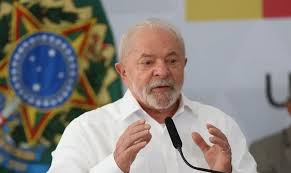
As Brazil’s President Luiz Inácio Lula da Silva remains hospitalized after an emergency surgery for brain bleed, political negotiations on spending cuts are likely to slow down.
Lula underwent surgery on December 10 to address complications that resulted from a fall he suffered in his home in October. While doctors stated that brain bleed was not unusual in such cases, Lula will remain hospitalized until next week.
The hospitalization comes amid negotiations between the government and congressional representatives to define next year’s spending cuts, which are key to control rising debt and inflationary pressures.
“In the short term, Lula’s hospitalization will increase the difficulty of the government’s negotiations with congress regarding budgetary issues for fiscal control. In the end, whenever there are disagreements between the government and congress, Lula is the one who mediates a resolution, and with him in the hospital, this is likely to make it more difficult, causing a delay in reaching a decision,” Mário Sérgio Lima, an analyst at Medley Global Advisors, told BNamericas.
The government has faced increasing pressure from investors due to rising public spending, which has generated inflationary pressures and is expected to lead the central bank to raise the benchmark rate even higher, affecting economic performance.
The health issues could also affect Lula’s bid for reelection in October 2026.
“We may see in Brazil, in the next presidential election, a scenario very similar to what happened in the elections this year in the United States, when President Joe Biden’s health and his age became the center of political debate,” André Pereira César, a political analyst at Hold Consultoria, told BNamericas.
“In 2026, people, especially those centrist voters who are not strongly aligned with either the left-wing or right-wing candidates, may start questioning whether Lula would truly have the ability not only to face the 2026 election campaign but also to govern for another four years, bearing in mind that by the next election, Lula will be over 80 years old.”
Lula returned to office in January 2023, after serving two consecutive terms from 2003 to 2010, when he enjoyed high public approval, which enabled him to support a successor, Dilma Rousseff, who was president from 2011 until mid-2016.
But not even Lula, considered one of the most charismatic political leaders in the country’s history, can escape polarization, which is reflected in his current approval ratings.
In a survey of nearly 8,600 people conducted by pollster Quaest between December 4 and 9, 33% of respondents rated Lula’s administration as good or excellent, 34% as average, and 31% as bad or very bad, compared to 32%, 31%, and 33%, respectively, in October.

